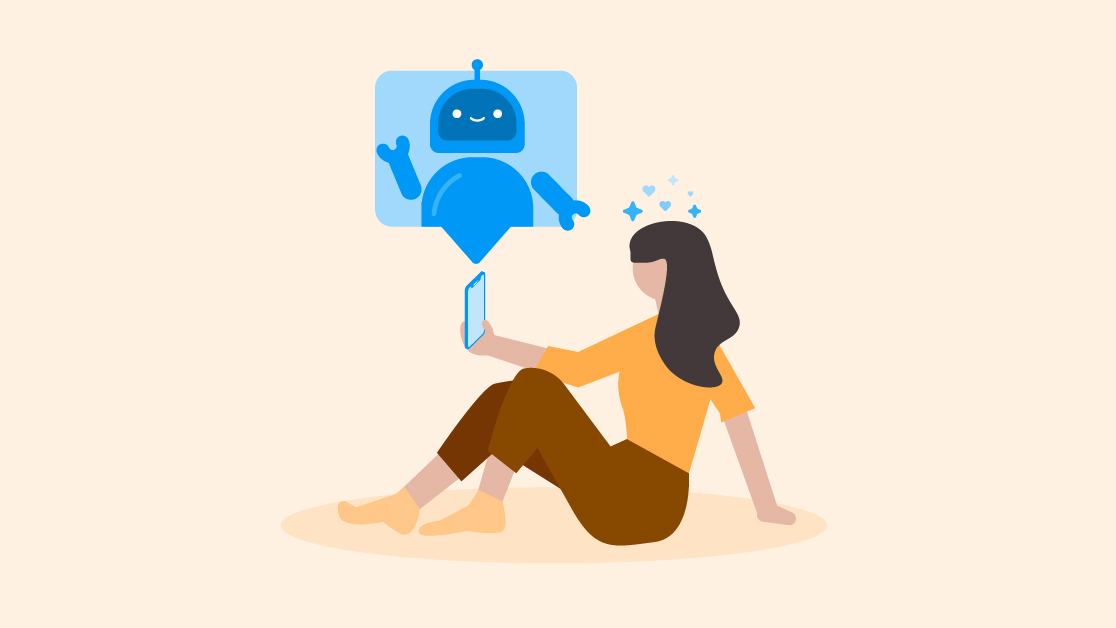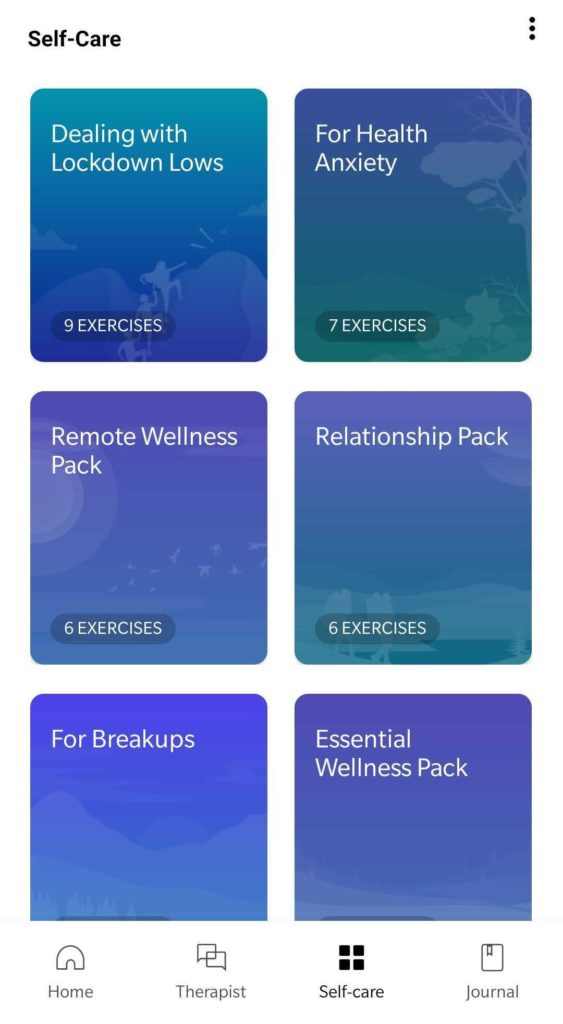How AI Supports Mental Health
As our social lives changed during the pandemic, lots of AI apps were launched to help ease loneliness. Let’s take a look at how AI supports mental health.

As our social lives changed during the pandemic, lots of AI apps were launched to help ease loneliness. Let’s take a look at how AI supports mental health.

One of the biggest societal shifts that came about during the pandemic was also one of the most overlooked–a significant increase in loneliness.
A review of 34 multi-continental studies by the American Psychological Association found a 5% increase in loneliness across the groups studied.
While that may sound like a small number, researchers agree that it’s only the tip of the iceberg, with the study’s lead author noting that, “loneliness should be made a priority in large-scale research projects aimed at investigating the health outcomes of the pandemic.”
So–while we were all staying isolated at home, a form of companionship became more popular to help people: AI friends.
Apps began popping up that offered users the opportunity to talk to an AI bot just like they’d talk to their real friends.
While that seems like a small, unimportant tech development, it actually holds a lot of potential for the future of mental health.
More on that later. For now, we’ll take a close look at ways AI apps support mental health and help ease loneliness.
Note: This is not intended or implied to be a substitute for professional medical advice, diagnosis or treatment.
The most important way AI apps support mental health is by providing companionship.
As we mentioned, lots of apps featuring AI “friends” launched during the pandemic. These friends took on a couple of different forms.
One type features a customizable face to add to the feeling of talking face-to-face with a pal. Replika is a good example. Within Replika, you can customize your AI character and talk to it about whatever you like, even over video.

Your Replika buddy will learn what you like and what’s important to you the more you interact. With apps like these, you can recreate the experience of chatting with a friend as often as you need it.
The benefits of seeing another “human” face go beyond simple comfort. A study from the Journal of Comparative Psychology notes that, “For humans, faces are among the most important visual stimuli.”
Seeing others’ faces forms much of the basis of our social exchanges, and apps like Replika serve to give us that part of socializing when we can’t be physically around other humans.
The other model is more like a chatbot, sending text messages back and forth with the user. You may have heard of Wysa, which emerged as a leading example of chat-based AI companionship.

After all, not everyone wants to simulate an in-person conversation. If what you’re sharing makes you feel vulnerable, having a text-only interaction could be more comfortable. Talking over text may even feel more like keeping a journal, but better, because you get feedback after sharing.
Apps like Wysa are best suited if you want to talk but don’t want to do it face-to-face. Many of these apps offer coping strategies for depression, anxiety, and feelings of loneliness for an extra-helpful boost.
We’ve talked a lot about the good that can come from supplementing human social interaction with AI apps and companions.
But, like all things, AI social apps have both pros and cons.
Pros: On the bright side, these apps allow us to talk through our feelings and anxieties, allowing us an outlet when we’re overwhelmed or lonely.
Humans have to socialize to stay healthy, and so talking to an AI can even be a form of self-care.
Cons: On the other hand, too much of a good thing is…well, a bad thing. There’s the potential for too much reliance on our AI friends. Not to mention, AI is a developing field of technology, and is still a little unstable.
If you’re facing severe anxiety or loneliness, AI may not be able to help you the way a therapist can, and the issue could get worse.
All that means is that anyone looking to use AI apps to help with loneliness should look at these apps like a social outlet, not a therapist or a complete support system.
There’s no doubt that AI apps have come a long way–and that they’re useful tools for supporting mental health and reducing the loneliness many of us have felt over the course of the pandemic.
While the apps that we’ve talked about here are great for simple daily tasks and building healthy habits, the fact remains that AI is new, constantly-developing technology.
The good news is that the future is bright for AI, with healthcare professionals and practices applying it to help them manage their offices and (slowly) bringing AI into patient care.
The bad news is that it’s still a risky bet to trust your health entirely to an app.
Over the long term, the world’s mental health institutions are making AI applications for human healthcare a research priority.
Until then, apps like the ones we’ve highlighted in this article are a great way to supplement your need to socialize and keep you on track to better physical and mental health.
Lily is a content marketing specialist at SimpleTexting. She specializes in making helpful, entertaining video content and writing blogs that help businesses take advantage of all that texting has to offer. When she’s not writing or making TikToks, you can find Lily at roller derby practice or in a yoga studio in the Seattle area.
More Posts from Lily NortonWant a three-day weekend every week? We asked Americans how they really feel about the traditional work week.
ReadAuto repair marketing isn't limited to traditional media. Learn how to set your shop apart with seven marketing strategies you can begin employing right now.
ReadStart a text marketing campaign or have a 1-on-1 conversation today. It's risk free. Sign up for a free 14-day trial today to see SimpleTexting in action.
No credit card required